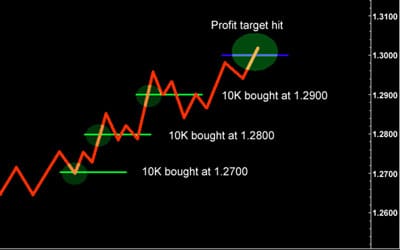- Buyers are interested in using Bitcoin as a form of down payment for their mortgage.
- Anti-money laundering regulations can stall your mortgage application process if you use cryptocurrency.
- Student loans do not affect your mortgage affordability and can increase your chances of being approved.

Mortgage brokers at L&C Mortgages answer some of the most asked questions regarding the purchase of a property, including whether cryptocurrency can be used as a form of down payment.
Can I use cryptocurrency for a mortgage down payment?
The short answer is yes, cryptocurrency can be used; however, there are limitations that potential buyers need to be aware of.
As this form of currency is still relatively new, some lenders will not accept this and may immediately deny your application; however, some lenders will consider offering you a mortgage and accept money derived from cryptocurrency as a deposit.
Anti-money laundering regulations mean that lenders must trace down the source of any money that has been put towards a mortgage down payment. As cryptocurrency is not a tangible form of money, it must be converted to ‘real’ money (for example, pound sterling) into the buyer’s bank account, typically done through a third party.
This means that lenders will become weary, as they will need to identify the source of that money, which can be a complicated process, especially as cryptocurrency is unregulated and, unfortunately, has become a route used by money launderers. Buyers will need to be as cooperative as possible when trying to prove that the money has been obtained legally.
It is best to speak to a mortgage broker specialising in dealing with cryptocurrency for deposits, as they will have relationships with lenders who accept various types of cryptocurrencies. They will also advise on what legal documents must be acquired and prepared. For example, have bank statements and other documents that show how much you bought, held or sold at the ready. Finally, ensure all cryptocurrency profits and earnings are declared to HMRC.
How does a student loan affect mortgage application?
A student loan will not affect your application, as it is considered a low-risk debt. It can indicate to the lender that you are more likely to meet your repayments as the chances of the buyer having a graduate career are high. The main concern with student loans is the amount of your monthly repayments.
Most lenders have an ‘acceptable overall debt level’, where they measure all your debts to determine your mortgage affordability. Therefore, your application will be affected if you have a large student loan, along with any other considerable amount of debt.
On the plus side, student loans do not affect your credit score and do not appear on your credit file. This means buyers must declare that they have a student loan to lenders; if you are caught withholding information, your application could be denied, and future applications will be affected.
Finally, those who do not earn above the student loan repayment threshold (which is different depending on the type of student loan plan you received) will only have to start repayments once they earn above the threshold.
Lenders will happily accept those still with student loans to if the applicant has a stable and adequate income. Some degrees may even improve your mortgage affordability, ultimately increasing the amount you can borrow.
Those still studying can get on the property ladder, though they must be able to prove they qualify, showing that they have a solid income and credit history.
How much can I borrow?
Your mortgage affordability determines the amount you can borrow. Mortgage affordability is a term used when lenders assess whether you will be able to afford monthly repayments of your mortgage.
Lenders will assess multiple factors, such as age, income, and monthly outgoings to determine if you can pay your mortgage back at both the current and potential future rates. They will also look to see if there are any likely changes to circumstances that could affect your ability to pay the mortgage. For example, if you’re about to start a family, then they may want to factor in any cost of childcare on returning to work.
How can I get a mortgage?
The first step is determining how much you can afford to spend on your monthly mortgage by analysing your current financial commitments.
You will also need to check your credit history, as lenders use this to find out whether you can manage your debt responsibly. They will do this by using data from a credit reference agency such as Experian or Equifax.
If you have a lower credit score, you can improve your score by ensuring you pay any credit on time and consider setting up direct debits for payments, and close any credit card accounts that are no longer in use. Surprisingly, not being on the electoral roll can also damage your rating.
A large deposit can boost your chance of being successful, but also remember to save up for other fees that will arise, such as stamp duty, surveys, and additional conveyancing fees.
It is recommended that you get a DIP, a ‘decision in principle’ or ‘mortgage in principle.’ This shows sellers that you are serious about purchasing, but also will give you a clearer idea of how much a lender is prepared to offer you.
As there are numerous types of mortgages, you will need to determine which you want, the most common being a fixed-rate mortgage. These are common because the interest rate will not change for the duration of the fixed rate, which gives you the security of knowing what your payments will be. One drawback is that if interest rates fall, there will be no change to your monthly repayments. This is where getting professional advice from a mortgage broker can be invaluable. A good broker will search across the market for you, taking into account your situation and checking lender criteria to ensure you get the best deal that suits your circumstances and will qualify for.
When will interest rates change?
Ultimately, there is no way to know when interest rates will fall or change. Usually, rates change every six weeks; however, the Bank of England has kept the rate at 5.25% since August 2023. This is done to tackle recent high inflation figures, a significant problem in the UK.
It is forecast that rates could increase by a further 0.25% or 0.50%, potentially peaking at 5.75% and then falling over the next five years as inflation eases.
Tradersdna is a leading digital and social media platform for traders and investors. Tradersdna offers premiere resources for trading and investing education, digital resources for personal finance, market analysis and free trading guides. More about TradersDNA Features: What Does It Take to Become an Aggressive Trader? | Everything You Need to Know About White Label Trading Software | Advantages of Automated Forex Trading










































